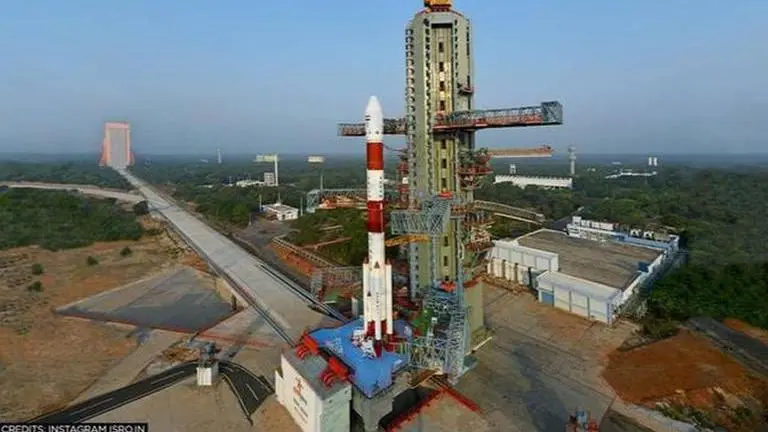Updated 17 July 2021 at 15:31 IST
ISRO set to launch two major missions in August, September; read here to know details
In August, ISRO has planned to launch the GSLV and in September it will be launching PSLV. However, no specific date has been mentioned yet by the officials.
- Science News
- 3 min read

After the successful operation of liquid propellant Vikas Engine, the Indian Space Research Organisation (ISRO) is gearing up for two other launches in August and September. As per the information provided on Satish Dhawan Space Center (SDSC) website, the GSLV launch is scheduled for August and PSLV is scheduled for September. However, the website has not specified any dates.
India’s earth observation satellite GISAT-1 will be carried out by GSLV rocket that is meant to be placed in Geostationary orbit (36,000kms from the earth). Made for Communication, this orbit will cover a large swathe of land. The name has been derived from geostationary orbit that would be in sync with the rotation cycle of the earth(24hrs) and would appear motionless when seen from the earth. According to the website, three aptly positioned Geostationary satellites can cover almost all of Earth.
ISRO has additionally informed that GISAT-1 is meant to provide near-real-time imaging of a large region of interest at frequent intervals, quick monitoring of natural disasters, episodic events and also obtain spectral signatures for agriculture, forestry, mineralogy, disaster warning, cloud properties, snow, glaciers and oceanography.
September's PSLV rocket launch
The PSLV rocket launch is expected to carry a satellite labeled as EOS-4 or Earth Observation Satellite 4. Earlier, in February, a PSLV (on a commercial flight) launched Amazonia-1, a Brazilian Earth Observation Satellite and 18 smaller satellites. Both the launches will be India's second and third launches this year.
Advertisement
ISRO tests 'Vikas Engine' for first manned Space Mission ‘Gaganyaan'
On July 14, the Indian Space Research Organisation (ISRO) successfully conducted the third long-duration hot test of the liquid propellant Vikas Engine for the core L110 liquid stage of the human-rated Geosynchronous Satellite Launch Vehicle (GSLV MkIII) vehicle. India’s space agency successfully conducted the test for a duration of 240 seconds from its engine test facility ISRO Propulsion Complex (IPRC), Mahendragiri in Tamil Nadu. Space enthusiast Elon Musk had also wished congratulations to the Indian space team for the operation.
GSLV MkIII-M1 had successfully launched the 3840 kg Chandrayaan-2 spacecraft into an earth orbit on July 22, 2019. It was ISRO’s first operational flight of the GSLV Mk III. The recent test was a part of the engine qualification requirements for India’s first-ever crewed space mission ‘Gaganyaan Programme’ which will be the first human spaceflight to Low Earth Orbit (LEO), marking the beginning of an era of sustained Indian human space exploration.
Advertisement
Published By : Bhavyata Kagrana
Published On: 17 July 2021 at 15:31 IST
